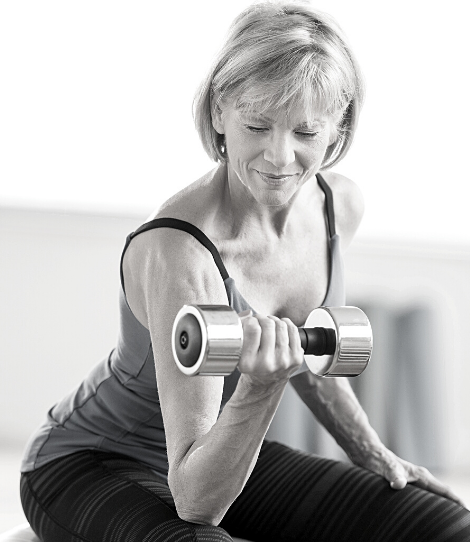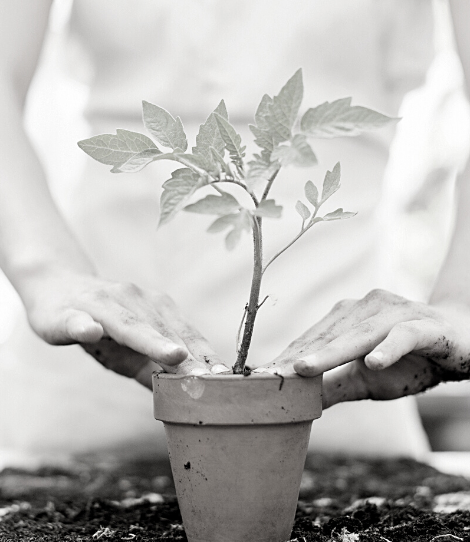Jennifer Howze shares her story of what happened to her family and her life when she discovered her husband was gambling.
I can still remember how the late afternoon sun looked, shining across the park’s luxuriant grass and pouring through the pub window. Golden. It had flicked on a lightbulb inside my pint glass, and I relished this afternoon drink with my husband. Our two children weren’t home that night and the whole evening stretched before us.
And a few minutes later my life imploded.
‘I’ve got something to tell you,’ he said. My mind went to the obvious place: an affair. Now, the thought makes me laugh, really. If only this had been mere sexual infidelity. Instead my husband of 18 years revealed that he’d been gambling. For a long time. Doing it on his phone, at gambling clubs, in pubs. And he’d lost a lot of money.
“How much?”
“A lot.”
“You can’t just say a lot. What, £10,000?”
He stared at his drink.
“£20,000?”
His eyes flicked up at me.
In the end I stopped guessing and he told me: six figures, more than my annual salary. Somehow my pint glass was empty. The next round, I ordered a whiskey.
Understanding gambling
A YouGov survey commissioned by the charity GambleAware estimated up to nearly 1.4 million people in Great Britain are problem gamblers. Close to a quarter of gamblers do it online. And as many as 3.6 million people have been negatively affected by someone else’s gambling problem, the report says.
Trying to stem the tide
In the days and weeks after that revelation, my practical impulses swung into action. I could fix it! “First thing tomorrow I’ll cancel my pedicure,” I thought. I reevaluated our household budget and cancelled subscriptions: magazines, streaming services. Maybe we could sell the convertible and buy something more economical?
This type of money management was something I’d grown up with. My parents had always instilled a frugal mindset: taking our lunches to school and foraging at charity shops. And I never expected to be fabulously wealthy. After all, from a young age I knew I wanted to write. Financial security would be a matter of a slow and steady strategy like my parents practiced, made up of pennies not pounds. When I was finally settled down, married to a man with a professional career, a decent job myself, two kids in private school and a repayment mortgage, I thought my financial fate was sealed. Each year would bring more savings, additional pension contributions and eventually a comfortable retirement, rocking chairs optional.
When it all broke down
Now that ended and quite abruptly. After several months of trying to hold the marriage together – with counselling, support from our families, personal loans – it finally all broke down. He lost his job and was lower than ever, which put us under even more financial as well as mental strain. As the pressure piled on, I become angrier and short-tempered. Discussions about the future ended with us standing in the kitchen screaming at one another. People asked: Did I still love him? In the wreck of our lives, the answer seemed beside the point.
We initially tried to keep the revelation about the gambling from the children, concerned it would frighten or confuse them. But as the changes became bigger and he became more depressed that became impossible. You can’t hide the fact that Daddy is lying on the sofa all day mainlining TV sports as Mummy loses her mind. Eventually the house went on the market and we had a vague conversation about Daddy’s illness and that it meant we didn’t have as much money as before. There were a few tears, but they held up admirably – one might say better than their parents.
Throughout this period, he kept promising he’d quit gambling. At some point, I stopped believing him. I was suffocating. If I felt that if I wanted a future for myself and my children, I had to get out.
How to be poor
It’s not just painful to get rid of your old life. It’s a logistical nightmare. The antique bed that won’t fit into your small flat or the books you have give away by the boxful, if you can find someplace to take them. “You have such lovely things, you should sell them!” people said. But stripped of their emotional meaning, my possessions looked measly. An old scuffed dresser. A piece of original art whose value was eclipsed by the frame that held it. I couldn’t even get a bid on a pair of barely worn Louboutins I tried to flog online.
And this is what began to grind me down. So many things I took with me from the old house to the new home for myself and the children were chosen not because of their beauty or meaning but because of their practicality. Did I need it or simply would it fit into our tiny new flat? I had dreams of created a chic monastic new life but instead we lived among piled-up boxes full of things that were not quite good enough to unpack (and where would we put them anyway?) but not bad enough to simply toss.
Goodbye to my old life
I mourned haircuts with my expensive stylist in Knightsbridge where they served me a glass of Champagne on arrival. I yearned for our luxurious holidays – the kind my friends were still planning – the cushy luxury suites, the plunge pools on the patio, the excitement of arriving somewhere new and beautiful, introducing the children to new food at little cafes while we drank local wine. Most of all I missed the life I’d had: a husband I trusted and relied on, a family, days when money wasn’t a constant fear and I didn’t wake at wondering, “What will become of us?” I wasn’t just cash poor. I was impoverished.
What happens to women in divorce
It’s a state of affairs for many women after divorce. In general, we fare worse from divorce. Historically, men have seen their income rise 25 per cent after divorce, while many ex-wives are plunged into poverty. This is based on a lot of factors, including taking time off to care for children or elderly family members, not receiving a share of a partner’s pension, not saving as much as men in general (something that’s also impacted by the gender wage gap).
My husband wasn’t faring better than I was. On the contrary. The amount he agreed for child maintenance was as much as he could manage and still didn’t cover half the costs of what we needed. That meant everything else was down to me.
Then pandemic hit and suddenly my work dried up as well. (In general we can expect fallout for women in the coming months and years. Women were more likely to have jobs in sectors affected by lockdown and we’ve taken on more caring responsibilities, which impacts health, mental health and financial independence.)
The moment I realised how bad it had gotten
It was during the first lockdown that most nights I stayed up past midnight drinking wine until I could collapse into bed. I doom-scrolled the news. I saw a doctor who prescribed antidepressants that seemed to have little effect. I began to wonder what would happen if I lost the flat – where would we live? Would I ever earn again? I looked around my life, stuffed with things that seemed to have costs thousands to acquire but worth practically nothing and it felt like a metaphor for my entire life. I would not be able to provide my children with a better life. It felt like this one revelation had set up a chain reaction that would end in penury and despair.
Soon after I was driving to the garage to get a new tyre and someone pulled out suddenly into the lane in front of me. I yelled a string of obscene words that surprised even me. I screamed, just a long shrill noise that bounced off the windscreen. When I ran out of breath, I filled my lungs then screamed again, the effort scraping my throat. My shoulders shook with sobs that turned into laughter then back again. Yet I felt nothing inside. I was watching and listening from someplace outside myself and for one moment I wondered whether I was finally truly cracking up.
That evening I got home and while looking out my window at the empty street I said simply, “I give up.”
A new mindset
I wasn’t giving up on life. But I realised in that moment that I had to give up on my old way of thinking about money, of expecting that I could somehow get my old life back. I had to quit thinking about this former plan I had mapped out. Things had changed and finally I realised I had to change too.
The expected place for this story to end is with a swelling of music in which either I find a new power that creates huge financial wealth or leads to an understanding of life in which the ‘wealth’ is actually something more profound: a deeper love for my children, an appreciation for the beauty of nature, or maybe inner peace.
Get real.
What disaster taught me
Having your world implode is an exercise in self-enlightenment that no one would desire. There’s nothing noble about undergoing a crisis that has you wondering how to afford groceries or a place for your family to live.
What this disaster did do is make me realise that my finances aren’t something I sort out once then forget about. They are not something “over there” that I have to force myself to deal with only when forced to. And I realised that the future of my children and myself is not assured as a ‘natural’ upward trajectory because I’ve done the ‘right’ things or I’m a good person or because I deserve it. (Although I do. I definitely deserve it!) I understood that — whether or not it’s our ‘fault’ — any one of us can fall financially and not ever bounce back. If I want a different situation, I have to fight for it.
I carved out new work that took me in an exciting new direction. I stopped splashing cash on little things we “deserved” and starting thinking more strategically about long-term money goals. Only carefully selected clothes purchases. No takeout. No fluffy towels…because drying them at the laundromat is a cost I’m no longer willing to bear. It’s not about whether we can ‘afford’ it. It’s that I don’t want to spend my money this way when I can put it toward something else that’s more important in the long-term, like a holiday fund, special gift or pension.
How things can change for the better
And yet, there is something glimmering and hopeful about this new mindset. If everything has to change, then things really could change. When I’m no longer thinking about secondary school, I can completely reimagine my life. Already it’s no longer organised around my 4-bedroom home, fancy restaurants and upgrading the car on a regular basis.
Should I move into a beach shack and spend my weekends surfing? Should I live in a garret and write? Should our family holidays become rough camping getaways where we cook meals over a fire? Should I start a third-act career that generates loads of cash?
Maybe all of these. Maybe something I have not yet imagined.
But no matter what, that old way of thinking about money is dead to me.
Long live the new version.
Jennifer Howze
Are you or is someone you know struggling with gambling? Visit the NHS page: Help for Problem Gambling. https://www.nhs.uk/live-well/healthy-body/gambling-addiction/
financial-advice-for-women
View All
Picture: Getty Images
5 steps to change the way you think about money in midlife
Midlife can drastically change our finances. It’s also an important moment to shift how we think about money.


